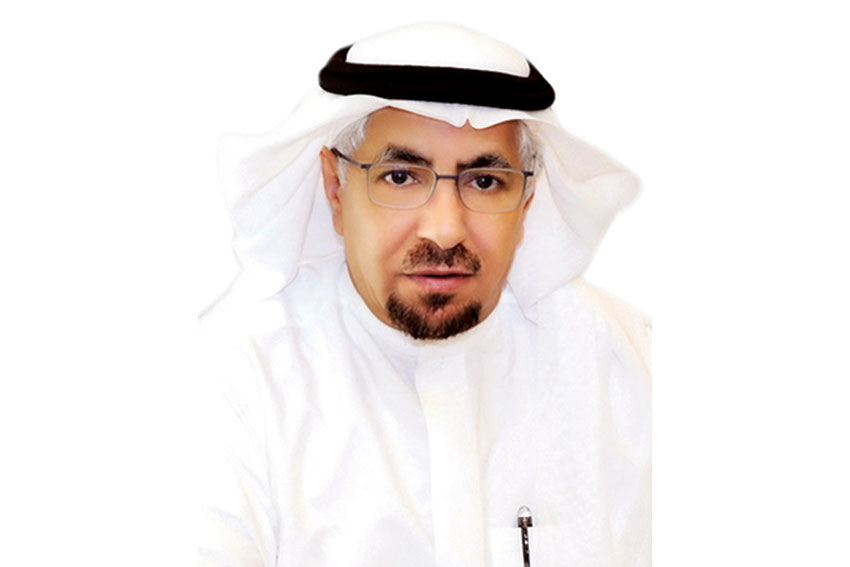A leading business group in the Kingdom of Saudi Arabia and the Arabian Gulf region, has had an influential and substantial presence in the commercial and business life of Saudi Arabia since 1982, with more than 10,000 employees. In this interview, Group president Saeed R. Al Zahrani speaks about the future of the Saudi economy and its attractiveness as an investment destination.

Where do you see the Saudi economy in 2020 and beyond?
A productivity-led transformation of the economy could enable Saudi Arabia to again double its GDP and create as many as six million new jobs by 2030. We estimate this would require about $4 trillion in investment. Eight sectors—mining and metals, petrochemicals, manufacturing, retail and wholesale trade, tourism and hospitality, health care, finance, and construction—have the potential to generate more than 60 percent of this growth opportunity.
Saudi Arabia’s economy is one of the largest in the world and also one of the least understood. During the decade from 2003 to 2013, it almost doubled in size on the back of a protracted oil boom. At the same time, it underwent a significant modernization that brought prosperity and change to Saudi society. Household income for Saudi nationals after adjustment for inflation grew by about 75 percent during the decade, 1.7 million Saudi jobs were created, and $450 billion was invested in health, education, and infrastructure, helping to boost living standards and improve the quality of life.
What are the critical influencing factors shaping the Saudi economy?
All stakeholders, including the private sector, foreign investors, and households, will need to be involved in this transformation. The state will have to embrace a new delivery philosophy while businesses adapt to a more competitive environment and the individual Saudi citizen takes more personal accountability. The transition will be challenging, but the new era of economic growth and employment it could usher in would be more sustainable than the oil booms of the past.
What has been the biggest success in diversifying so far?
At a headline level, the macroeconomic challenge in Saudi Arabia is to pick up the momentum toward economic diversification and to build additional engines of growth and jobs alongside the petroleum-dominated business environment. A far greater emphasis is being made here, from boosting education to streamlining rules, but there’s still a substantial amount of work to do.
Diversification into non-hydrocarbon exports has progressed somewhat; the share of non-hydrocarbon trade to non-oil output has increased. Non-oil commodity exports have been impressively strong, albeit starting from a narrow base.
What makes Saudi a unique place to invest and puts it above regional competitors?
The key reasons for investing in the Kingdom include:
It is one of the world’s 25 largest economies and the largest economy in the Middle East and North Africa Region - MENA.
The Kingdom is one of the world’s fastest growing countries worldwide, with per-capita income forecast to rise from USD $25,000 in 2012 to USD $33,500 by 2020.
It has substantial cost advantages due to the low domestic cost of energy and industrial land due to generous subsidies and incentives.
It provides duty free access to other GCC and MENA economies and enjoys good transport and infrastructure links which will soon be supplemented by a national rail system.
How will non-oil businesses be affected by diversification away from oil?
In Saudi Arabia economic policy is being guided by the National Transformation Plan, unveiled earlier this year, and closely identified with the Crown Prince Mohammed bin Salman. The overriding objective is to make the private sector and productivity growth the drivers of economic activity, rather than oil-fueled state spending. The process is not without its challenges, and there does seem to be a tension between the Saudization drive and a broader liberalization agenda, but overall the NTP is an appropriate framework to guide the country away from its long-standing dependence on oil and to move the fiscal position on to a sustainable footing.
How can current business owners help spur investment?
Saudi Arabia is one of the best performing rapid-growth economies in the EY G20 Entrepreneurship Barometer 2013, thanks to laudable efforts to reform its overall business environment in recent years. As one example, in the latest World Bank Doing Business ranking, it is ranked 22nd out of 185 countries, a major gain from its position of 38th overall in 2006.
This reflects the strong progress being made locally. But this favorable overall performance masks significant variation across some of the different entrepreneurship pillars. The country’s strongest performance is within tax and regulation. There’s no doubt that Saudi Arabia provides businesses with an accommodating and streamlined tax regime, which has been a major selling point in recent years.
Saudi Arabia’s oil focused industry has influenced how its economy has evolved. Almost half of GDP is accounted for by oil, which has reduced the impetus to push for high productivity in the non-oil economy.
The Government is now working to diversify away from oil. This will be a gradual process, but in time it should provide the underpinnings for a strengthened culture of entrepreneurship. Education is one of the key foundations of innovation-led growth, and there are encouraging signs of progress in this area. Saudi Arabia is investing heavily in education, and the creation of a number of science and universities focused on research and development (R&D) in recent years highlights the effort being made in this area.
Education now accounts for a significant proportion of all government spending and the Kingdom has invested notably in boosting both workforce skills and universities’ research capacity, which will surely bear fruit in the future. A less tangible aspect of this is the need to bolster the culture of entrepreneurship locally, which remains one of the challenges ahead.
0 COMMENTS